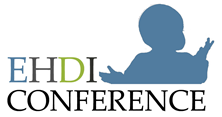| Presenter Information: |
| Presenter 1: |
Name: Kathleen Lynch
Affiliation:
Kathleen Bodisch Lynch, Ph.D. is Senior Research Associate with the Partnership for People with Disabilities at Virginia Commonwealth University. Along with her Co-PI from the Virginia Department of Health, she is conducting research on the impact of hearing loss and comorbid congenital anomalies on children and families in Virginia. This study is funded through a cooperative agreement between the Association of University Centers for Excellence and CDC’s National Center on Birth Defects and Developmental Disabilities. Dr. Lynch received her Ph.D. in Educational Research and Evaluation from the University of Virginia and has over 20 years experience as a program evaluator/researcher in the field of developmental disabilities. She has a wide range of research interests, e.g., educational inclusion from preschool through high school, supporting families of young children with disabilities, parent-professional collaboration, and applications of qualitative research methods.
|
|
| Abstract Information: |
| Title: |
What Do Parents of Children with Hearing Loss and Comorbid Congenital Anomalies Want Us to Know? |
| Primary Track: |
6-Family Issues
|
| Keyword(s): |
hearing screening, comorbidities, impact, qualitative |
Abstract: |
Preliminary findings from a mixed-methods study* of the impact of a child’s confirmed diagnosis of hearing loss and co-morbid congenital anomalies will be presented. In the first stage of the study, an innovative database linkage program was used to identify children born in Virginia in 2005 or 2006 who received a confirmed diagnosis of hearing loss. Data analysis showed that, compared to infants with hearing loss only, those with coexisting congenital anomalies were less likely to receive a hearing screen by 1 month of age (63% vs. 79%; RR = 1.25; 1.04-1.49) and were less likely to receive a confirmatory diagnosis by 3 months of age (28% vs. 44%; RR=1.59; 1.06-2.37).
In the second stage of the study, qualitative research methods were employed to obtain an in-depth understanding of families’ experiences following their child’s failure to pass the hearing screening. Telephone or in-person interviews were conducted with over 50 parents to investigate the impact of their infant’s health status on (a) the trajectory of assessment, diagnosis, and treatment of the hearing loss, including establishing priorities for intervention, (b) family expectations, relationships, finances, and use of community supports, and (c) interactions with the medical community. Interview data were analyzed using the methods of open coding, constant comparison, peer checking, and member checking. Experiences of families of children who had hearing loss and coexisting congenital anomalies, and those with hearing loss only, were compared and major themes were identified.
Results from this study have implications for how to improve the screening, diagnosis, treatment, and follow-up of children with hearing loss – as well as ways to communicate with and support families more effectively – with the ultimate aim of enhancing children’s developmental outcomes.
*Funded through an Association of University Centers on Disabilities Cooperative Agreement with CDC’s National Center on Birth Defects and Developmental Disabilities. |
| Presentation(s): |
Not Available
|
| Handouts: |
Not Available
|
|

